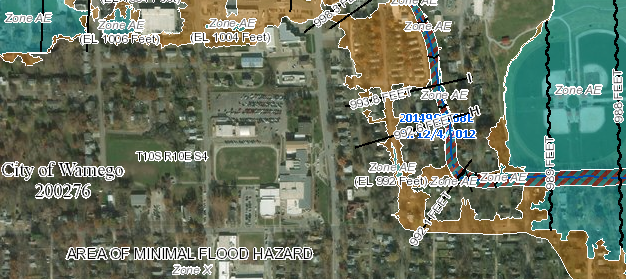Here at Tallgrass Title we are focused on helping to make each transaction happen as smoothly as possible. One of the tools we encourage people to use is electronic signatures. Programs such as Dotloop®, DocuSign®, and many others provide a secure platform for buyers, sellers, and realtors to affix their signatures to documents quickly and efficiently.
At the beginning of a transaction, contracts, addendums, and disclosures can be signed electronically. This cuts down on the time and shoe leather it takes to obtain documents to get the process started. Most programs also have a way to send a copy of the signed documents to the title company, so you don’t have to save a copy somewhere else on your computer to pass on later.
Soon after the commitment is sent out, our closing agents generate the Buyer Preliminary Documents and the Seller Deed Packet. We send them out as soon as possible and encourage early signatures as it helps the closing process go more smoothly. Our Buyer Prelim Doc packet can be signed electronically in its entirety. This packet includes a warning sheet about wire fraud; it is very important that it is read by the buyers at the earliest opportunity. Scammers and fraudsters try to steal earnest money deposits, not just closing funds! The fraud sheet also shows that we have partnered with a secure company called CertifID® to send and receive wire instructions. This program verifies the senders/receivers’ identities, verifies the wire instructions, and insures each wire sent using the verified instructions.
The Seller Deed Packet also includes a warning about wire fraud in case they would like to have us wire their proceeds to them at closing. This document and all other documents that do not need a notary’s signature may also be signed electronically. As a reminder: the Information Release form and the 1099 tax sheet require the seller’s social security number so please send the completed documents back to us securely. The Deed and any Affidavits will need to be signed in the presence of a notary. Your clients can either meet with a notary of their choice or they can visit our office where one of our notaries would be happy to assist. During this time of social-distancing, we do ask that you call us to let us know when they are coming.
The final documents that are needed for closing are the settlement statements and the loan paperwork if the buyers are receiving financing. For our purposes, the sellers can sign their statements electronically and don’t need to come to a closing appointment in person unless they choose to do so. As of this time, the buyers do need to sign their loan packet in person, either at their bank or in our office. Some lenders have begun to have buyers sign a portion of the documents electronically to reduce the amount of time needed to complete the closing. However, the buyers do need to sign the mortgage and a few other documents before a notary.
Please reach out to us to discuss which methods best fit your transaction. Our agents are happy to help walk you through the tasks that can be completed electronically in order to help your transaction go smoothly.








